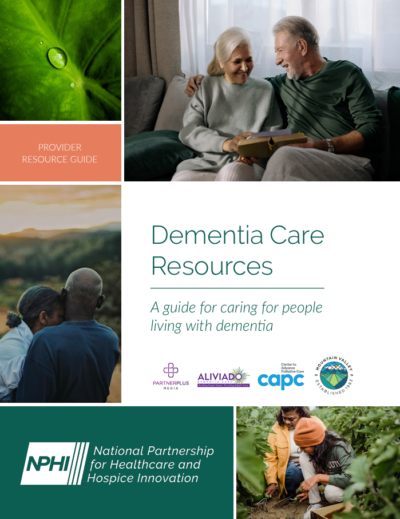Remarkable Memory Care Charlotte: Techniques for Engaging and Supporting Residents
Wiki Article
Effective Mental Deterioration Treatment Approaches for a Better Lifestyle
In the world of dementia treatment, the execution of reliable approaches is important for improving the lifestyle for both people impacted by the condition and their caregivers. Understanding the distinctive stages of mental deterioration permits tailored treatments that deal with the evolving needs of clients-- from advertising cognitive engagement in the beginning to making sure dignity in late-stage treatment. The importance of communication strategies and a supportive atmosphere can not be overemphasized. What certain techniques can be taken on to promote an ambience of concern and connection throughout this difficult trip?Recognizing Dementia Phases

In the early phase, people might experience moderate memory loss and trouble with familiar tasks. Care techniques should concentrate on keeping freedom and offering cognitive excitement. In the late stage, individuals may lose the ability to connect and require support with daily activities.
Acknowledging these phases allows caregivers to adapt their approaches and offer assistance that aligns with the person's existing demands, ultimately helping with far better monitoring of the problem and improving the total caregiving experience. Recognizing dementia stages is for that reason a foundational aspect of effective mental deterioration treatment.
Communication Techniques
Reliable interaction is an important component of mental deterioration treatment, especially as the condition advances via its different stages. As cognitive capabilities decline, it comes to be necessary to adapt communication strategies to fulfill the needs of individuals with mental deterioration. Making use of clear, basic language is crucial; caretakers should stay clear of complicated sentences and jargon, opting rather for straightforward, succinct expressions.Non-verbal communication plays an equally significant role. Facial expressions, motions, and tone of voice can communicate warmth and understanding, typically boosting verbal messages. Keeping eye call and an open pose cultivates a feeling of connection and safety and security, motivating people with dementia to involve more fully in discussions.
It is also advantageous to be individual and enable ample time for reactions. People might need extra time to procedure information and formulate their thoughts. Repeating or rephrasing inquiries may be necessary if comprehension appears lacking.
Last but not least, concentrating on the person's passions and personal history can facilitate extra significant interactions. Involving in acquainted topics can evoke favorable memories and emotions, even more enhancing the communication experience (dementia care charlotte). By using these methods, caretakers can considerably enhance the quality of communications, promoting dignity and regard for people living with mental deterioration
Producing a Safe Environment
Developing a risk-free atmosphere for people with dementia is vital to advertising their wellness and independence. A properly designed area can considerably reduce the threats of mishaps and improve the quality of life for those impacted by this problem.Illumination plays an important role also; making use of all-natural light wherever possible and incorporating night lights can aid people navigate their surroundings securely. Additionally, labeling spaces and vital objects can assist memory and orientation, minimizing complication and stress and anxiety.
It is also essential to create a familiar setting by individualizing the space with photos or valued things, which can stimulate favorable memories and a sense of belonging.
Incorporating furniture that is both comfortable and useful adds to a supportive atmosphere, allowing individuals to involve in everyday tasks easily. Inevitably, a secure setting not just safeguards versus physical threats yet additionally cultivates a complacency, which is important for the emotional wellness of those living with dementia.
Engaging Tasks and Routines
Involving activities and structured regimens are vital elements in the treatment of individuals with dementia, as they promote cognitive function, emotional security, and social interaction. These activities should be customized to the person's rate of interests, capacities, and phase of cognitive decrease. memory care facility charlotte. Simple, recurring jobs such as horticulture, crafts and arts, or cooking can provide purposeful interaction, allowing people to utilize their skills while promoting a sense of achievementEstablishing a daily routine helps create a predictable environment, which can minimize stress and anxiety and complication. This structure can include designated times for dishes, activities, and remainder, guaranteeing a well balanced approach to daily life. Integrating social interactions into these regimens, such as team tasks or seeing household, further boosts emotional health and battles feelings of seclusion.
Furthermore, exercises, such as strolling or dancing, not just advertise physical wellness but additionally stimulate psychological involvement. Motivating involvement in area occasions or assistance teams can provide extra opportunities for socialization. Generally, the assimilation of structured routines and appealing activities is crucial in improving the lifestyle for individuals with mental deterioration, fostering freedom and self-respect while resolving their one-of-a-kind demands.
Supporting Caregiver Wellness
Taking care of people with mental deterioration can dementia care charlotte be a demanding and psychologically exhausting experience, making it essential to focus on the health of caregivers. Caretakers often deal with high levels of anxiety, stress and anxiety, and physical exhaustion, which can lead to fatigue if not attended to appropriately. To sustain their health, it is important to implement a diverse technique.First, giving caregivers with access to education and resources can encourage them with approaches to take care of day-to-day obstacles. Support system, both in-person and online, use a platform for sharing experiences, fostering a feeling of neighborhood, and minimizing sensations of isolation. Furthermore, respite care services make it possible for caretakers to take required breaks, enabling them time to participate in and charge to their very own health and wellness requirements.
Additionally, urging caregivers to involve in self-care methods-- such as routine workout, healthy and balanced eating, and mindfulness-- can considerably boost their strength. Promoting open interaction about their sensations and obstacles with member of the family or professionals additionally helps alleviate emotional worries.
Verdict
To conclude, efficient dementia treatment approaches include a thorough understanding of the condition's phases, the execution of clear communication methods, the facility of a risk-free atmosphere, and the promotion of engaging tasks and organized routines. Furthermore, prioritizing the health of caregivers is necessary to maintaining quality treatment. By incorporating these approaches, the general high quality of life for people with mental deterioration can be substantially enhanced, promoting a supportive ambience that promotes self-respect and emotional well-being.In the world of dementia treatment, the application of efficient approaches is essential for enhancing the high quality of life for both people influenced by the condition and their caregivers. By using these methods, caretakers can significantly enhance the high quality of communications, advertising dignity and respect for individuals living with dementia.

Caring for people with dementia can be a demanding and psychologically straining experience, making it important to prioritize the health of caregivers.
Report this wiki page